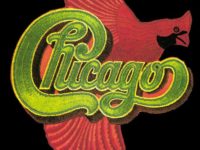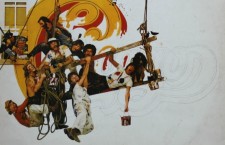As Chicago’s “Hideaway” illustrates, Peter Cetera could and did rock – despite often being blamed for the band’s shift from more musically adventurous, uptempo rock and roll with horns toward limp, hornless ballads.
A spotlight for the tight rhythm section, “Hideaway” features a driving beat from Danny Seraphine (who unleashes some really cool fills), one of Terry Kath’s more rocking solos, Cetera’s strong and underrated bass groove and then, towards the end, great piano work by Robert Lamm. It all feels like a thank you note from Peter Cetera to Kath for his beautiful vocals on “Wishing You Were Here” from Chicago VII.
Where “Wishing You Were Here” was exactly what one would expect from Cetera, given his reputation for ballads, “Hideaway” is anything but. He provided Chicago’s late guitarist an opportunity to just totally cut loose, both on rhythm and lead. Between a hard-driving riff that powers things along and scorching solos that beg for the volume to be cranked to 11, this Chicago VIII song couldn’t have been a more perfect platform for Terry Kath’s talent.
Cetera also gave Lamm a chance to shine: He adds piano work that would not have sounded out of place at a roadhouse bar where people are packed like sardines amid sticky floors and the stench of stale beer and urine. Lamm’s playing tends to be informed more by classical, R&B and jazz on much of Chicago’s material, but his contributions to “Hideaway” are pure rock and roll.
Rather than once again highlighting the horn section, this track becomes a welcome showcase for the equally talented and often underrated rhythm section of Kath, Cetera, and Seraphine. The chemistry between the three of them is palpable throughout. “Hideaway” also offers a reassurance to fans who may have felt the band was taking themselves a bit too seriously with the jazz tracks on Chicago VII. This showed they still knew how to have some fun and cut loose.
All that said, one can’t help but wonder if the lack of horns on “Hideaway” was one of the first seeds of acrimony between Cetera and the horn section that inevitably contributed to his 1985 split from the band.
- The Most Surprising Moment on Alan Parsons Project’s ‘Eve’ - August 27, 2024
- Why the Audiobook Versions of Jimmy Barnes’ Autobiographies Are Definitive - June 24, 2024
- Kahvas Jute – ‘Wide Open’ (1970): Antipodean April - April 28, 2024





You & I have opposite views on this song. I’ve always looked at as a generic hard rock song with nothing special going on. It sounds exactly what a person who doesn’t normally rock hard would produce when they want to prove that they can.